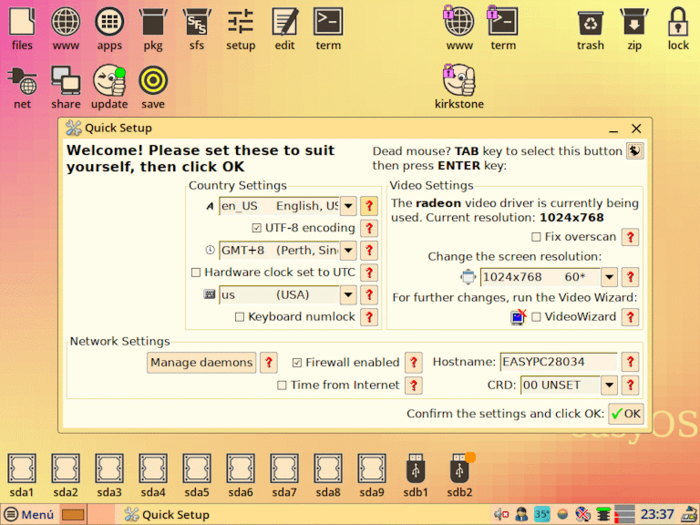Barry Kauler, founder of the Puppy Linux project, published The experimental distribution easyos 5.0 , combining the technologies of the Puppy Linux using container insulation to launch system components. Distribution control is carried out through a set of graphic configurators developed by the project. Size bootable image 825 Mb.
in new release updated versions of applications. Almost all packages are re-recovered from the initial texts using the project metadata OpenEmbeded 4.0 . The support of the Langpack linguistic packages and assemblies specific to certain languages have been stopped. The translations associated with the selected language are put into separately uploaded files. The choice of the interface language is now made after the first load. The Momanager application is rewritten, used to translation of user elements into different languages.

Features Distribution: >
- each application, as well as the desktop itself, can be launched in separate containers, for the isolation of which the own mechanism is used easy Containers .
- Work by default Root rights with the discharge of privileges when starting each application, since Easyos is positioned as a Live system of one user.
- Distribution is installed in a separate subcatalog and can coexist with other data on the drive (the system is installed in /releases/easy-4.5, the user data is saved in the /Home catalog, and additional containers with applications are placed in the catalog /containers ).
- Conserving of individual subcatals (for example, /Home) is supported.
- It is possible to install meta-packets in SFS format, which are mounted images with SquashFS, combining several ordinary packages and essentially resembling Appymages, Snaps and Flatpak.
- system is updated in the atomic mode (the new version is copied to another catalog and is switched by active The catalog with the system) and supports the rollback of the changes in case of problems after the update.
- There is a launch mode from RAM, in which, when loading, the system is copied into memory and works without accessing discs.
- Woofq tools and the initial texts of packages from the OpenEmbeded.
formats.